
5 minute read
A Path Towards a Better Tourism
By Ixchel López and Edith Carrillo
Claudia will go on vacations to relax and is undecided between her options: an all-inclusive hotel on the beach, a cruise in the Caribbean, or a trip to San Quintín to enjoy nature and local culture.
Advertisement
After reflecting and obtaining information, Claudia decided to visit San Quintin. We’re locked up in our homes to be part of the solution to this pandemic and not the problem; therefore, a place with few people and surrounded by nature gives her more certainty and satisfies her need for outdoor experiences.
COVID-19 paralyzed tourism, so Claudia decided that her trip would contribute to the local economy that has been severely affected. In her research, she discovered that approximately 65% of the economic income left by nature tourism activities is distributed among local communities helping promote their resources [1]. In San Quintín, she found companies that offer tourist experiences that respect nature and local culture. Some of them include activities that finance conservation projects in the protected area. Perfect! This option convinced Claudia, who is a responsible tourist.
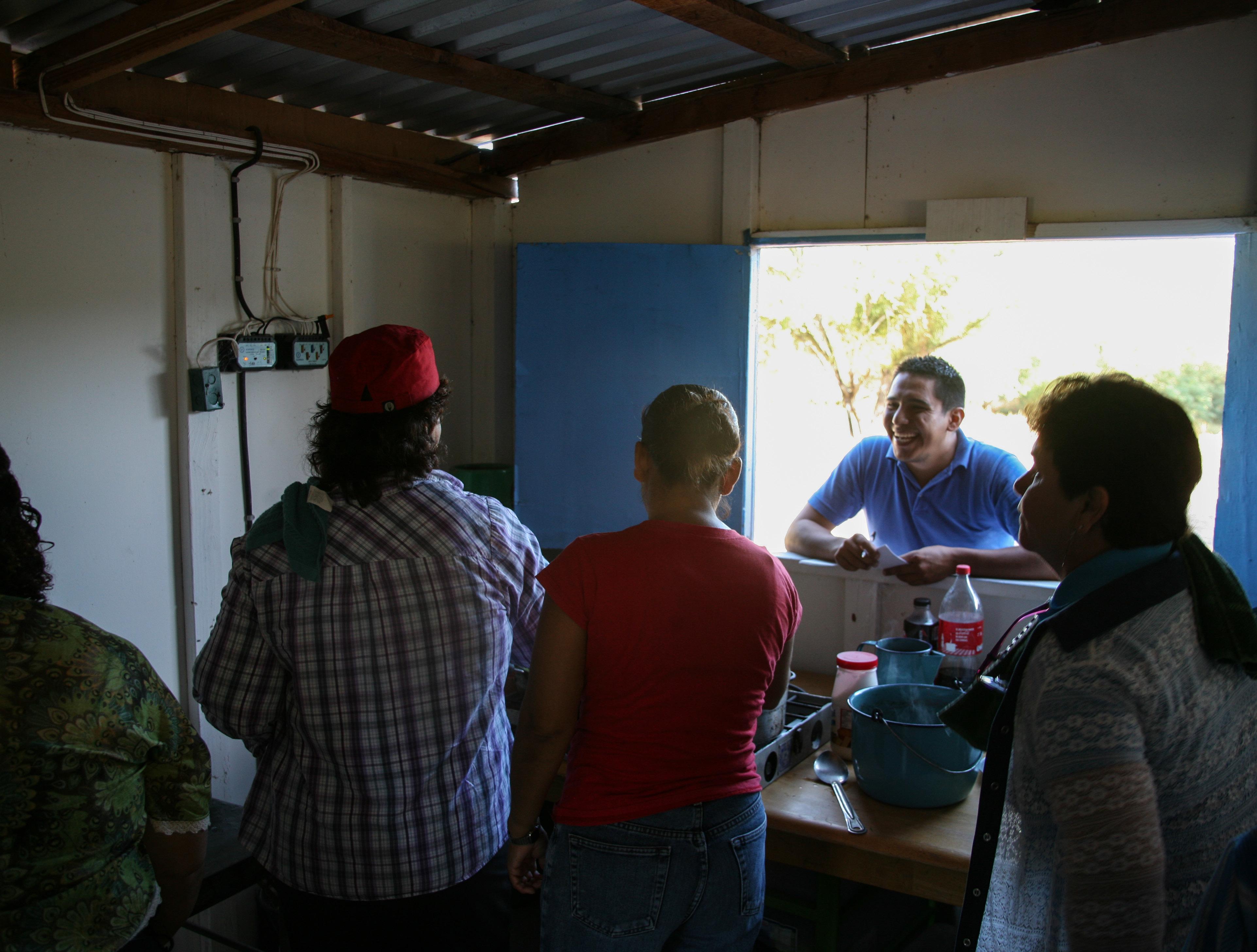
Food hygiene workshop aimed at two groups of women in Agua Verde).
Photo: RED Archive.
Trends show that people share Claudia’s vision. According to an analysis carried out in recent months [2], visitors will prefer tourist experiences that generate benefits for communities in remote places that comply with security measures and few people.
Tourism companies, institutions that promote, plan, and regulate the activity, and those of us who travel are responsible for creating tourism that benefits communities and the planet. This responsible tourism can only be built with local communities.
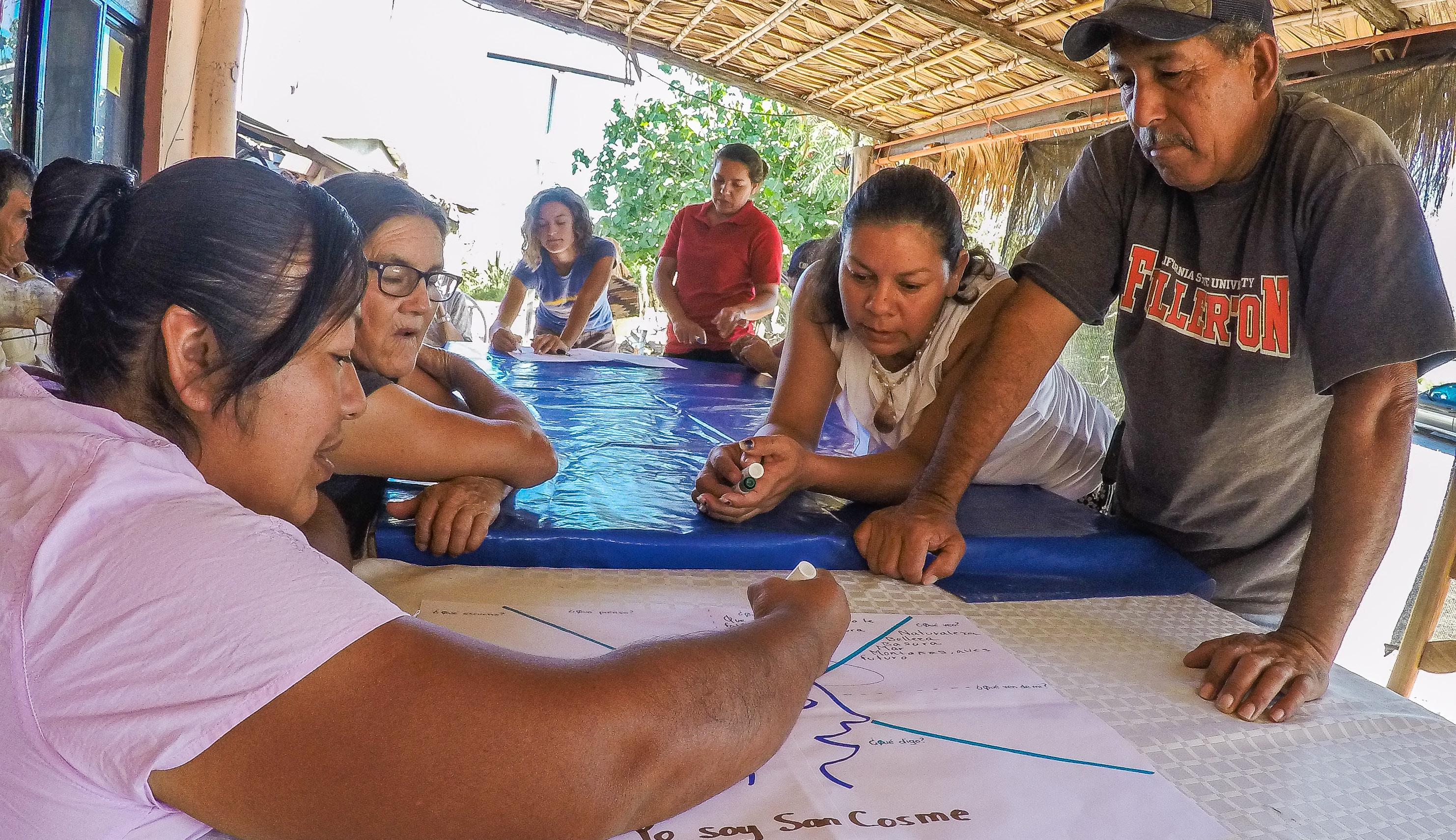
Collaborative planning workshop with Tierra de Artistas and Rancho San Cosme.
Photo by Ana Montiel.
For this reason, RED de Turismo Sustentable y Desarrollo Social promotes models of tourism that allow people to live with dignity in balance with their biocultural heritage. For more than ten years, we have collaborated with communities, government, academy, companies, and civil society organizations to strengthen capacities, design tools for managing tourism, and promote alliances.
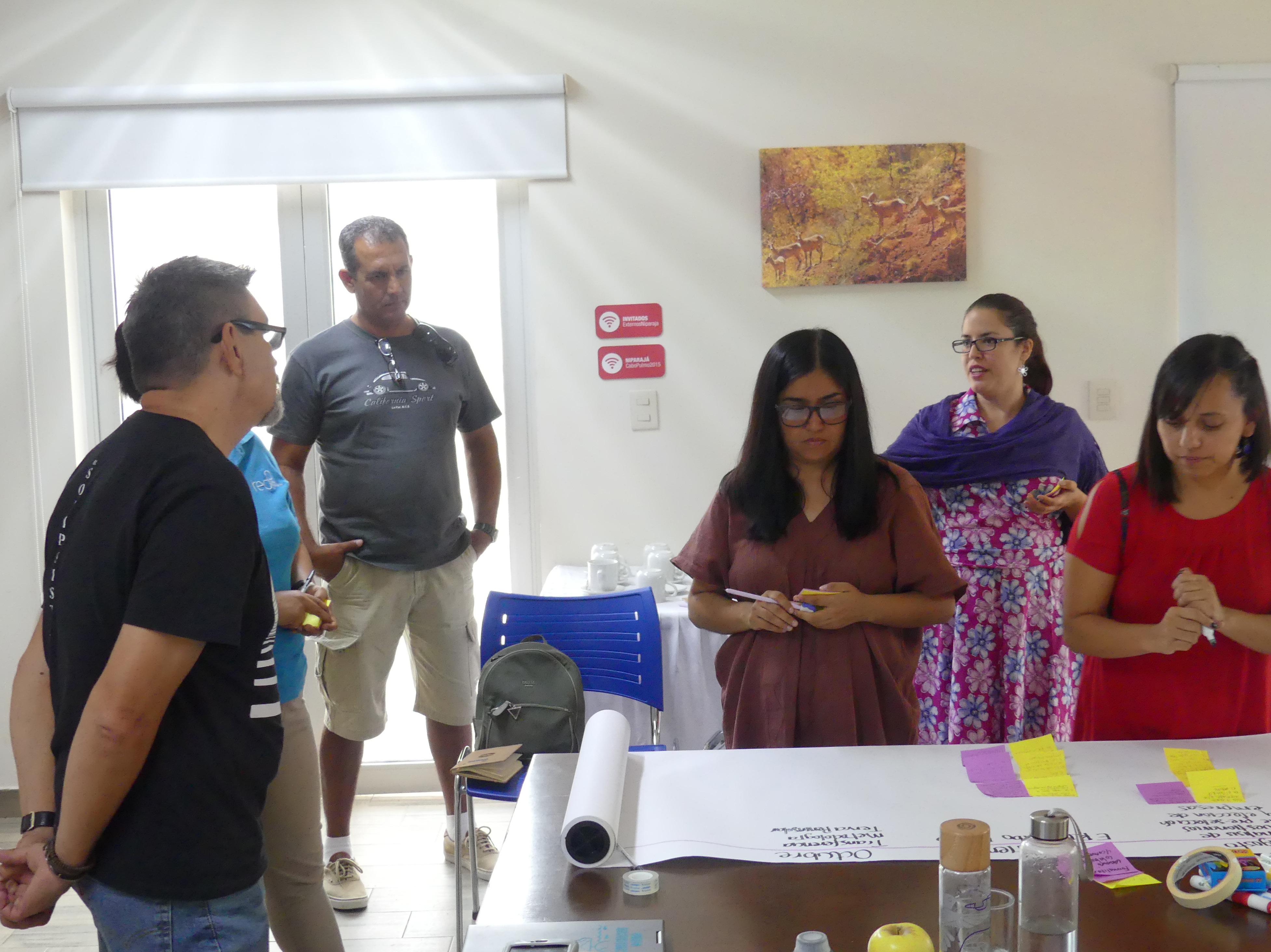
Workshop to evaluate the collaboration of organizations: Niparajá, NOS and Terra Peninsular organized by RED.
Photo: RED Archive.
Along this path, we met Terra Peninsular, an organization that works with tourism companies in San Quintín. We identified the opportunity to collaborate and strengthen business capacities, and in 2018 we started a project on strengthening tourism companies in the Baja California peninsula in which other organizations such as Niparajá and Noroeste Sustentable also participate. Collaboration is essential for RED, as we can expand our impact and reach more communities.

Integration activities in workshops.
Photo: RED Archive.
Let's get to work
RED has developed a methodology with a gender perspective to carry out capacity building programs to provide knowledge and tools for companies to be financially sustainable and move towards regenerative tourism. Also, it seeks to address some of the challenges identified, such as the design of experiences based on markets, financial management of companies, and implementation of sustainability principles.
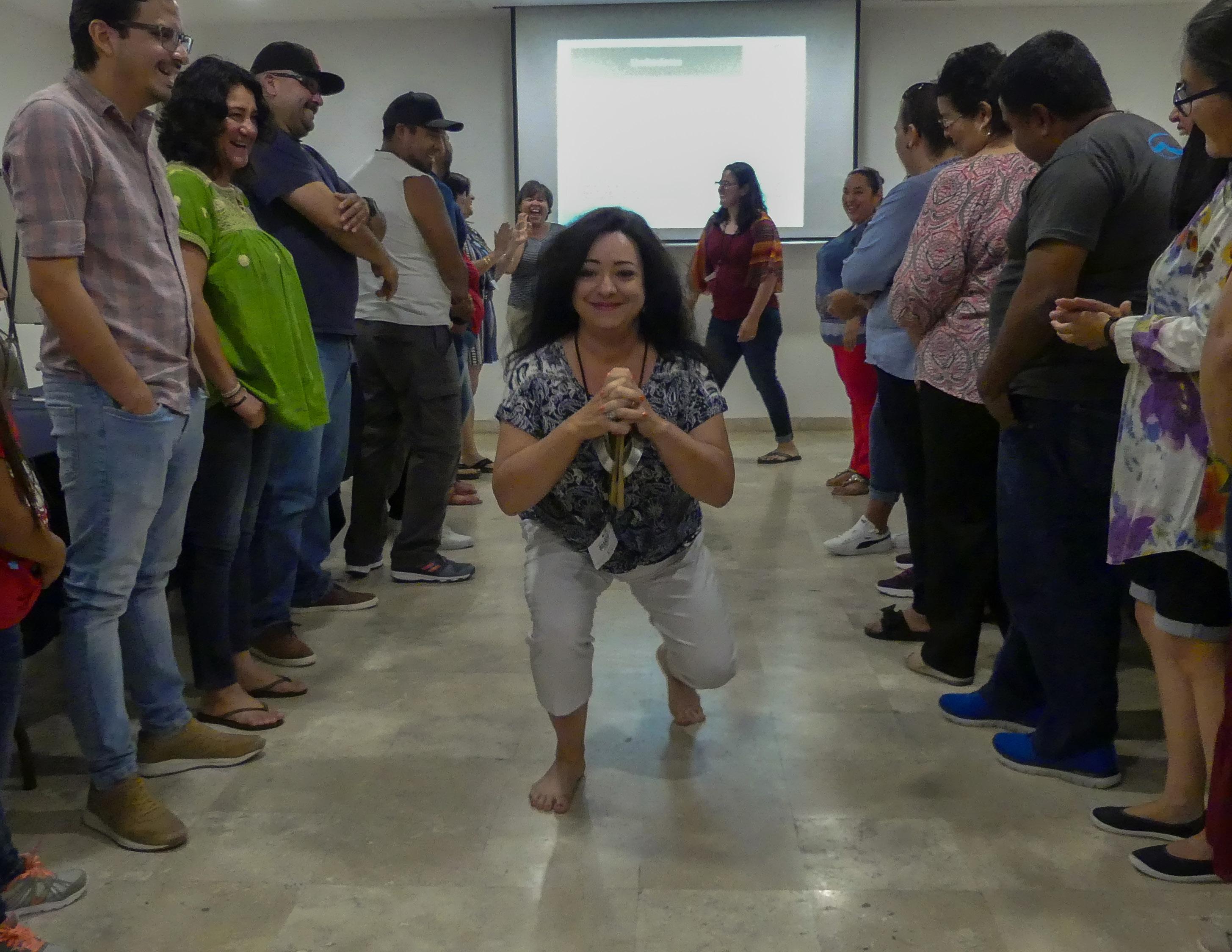
Integration activity during the administration workshop.
In the Baja California peninsula project, we launched a call aimed at companies interested in increasing their capacities and carrying out tourist activities in San Quintín, Baja California; Cabo Pulmo, La Paz, Agua Verde, and San Cosme, Baja California Sur. In collaboration with partner organizations, we selected 18 tourism companies.
To identify each company’s specific needs, RED designed the Rapid Business Assessment tool that has been used for over ten years. We obtain information on each of the companies’ status in business, operational, commercial, environmental, and social terms through interviews and field visits.

Technical advice to a San Quintin company.
Photo: RED Archive.
In addition, we generate indexes that allow us to evaluate the progress of each company. We select the main topics for the training process, which lasts approximately three years, with the results obtained. So far, the companies have participated in three workshops on topics related to the business plan, legal figures, commercial companies, internal control, labor obligations, and marketing in tourist destinations.
At the end of each workshop, companies carry out a work plan to implement specific actions in their companies. A person from RED provides advice to companies to meet their goals in the months following the workshop. One of our priorities has been to promote the creation of alliances between the individuals involved. In each workshop, we carry out activities that allow us to strengthen ties. RED has identified needs related to other areas since tourism is multidisciplinary, so we have generated alliances with Tierra de Artistas to carry out social architecture actions, with the Faculty of Veterinary Medicine and Zootechnics of the UNAM, and with the initiative Desplastifícate.

Administration workshop.
Photo: RED Archive.
Our present
2020 has been a complicated year: a lot of virtual work, pressure, and concerns. The pandemic forced us to adapt to the new circumstances and reflect on what we want for the future. RED designed the online workshop Rethink to Create aimed at companies and offered by the government of Baja California Sur. Also, RED, Terra Peninsular, and Niparajá were part of a call to action to position nature tourism to reactivate the tourism sector.

Advisory to Brisa del Mar, a women's group from Agua Verde BCS.
Photo by Rodrigo Moreno.
Today more than ever, RED is convinced that tourism must be regenerative and must be planned and carried out with communities to contribute to equitable socio-economic development and the conservation of biocultural heritage in Mexico. We invite you to be part of this change. Your travel decisions can make a difference.
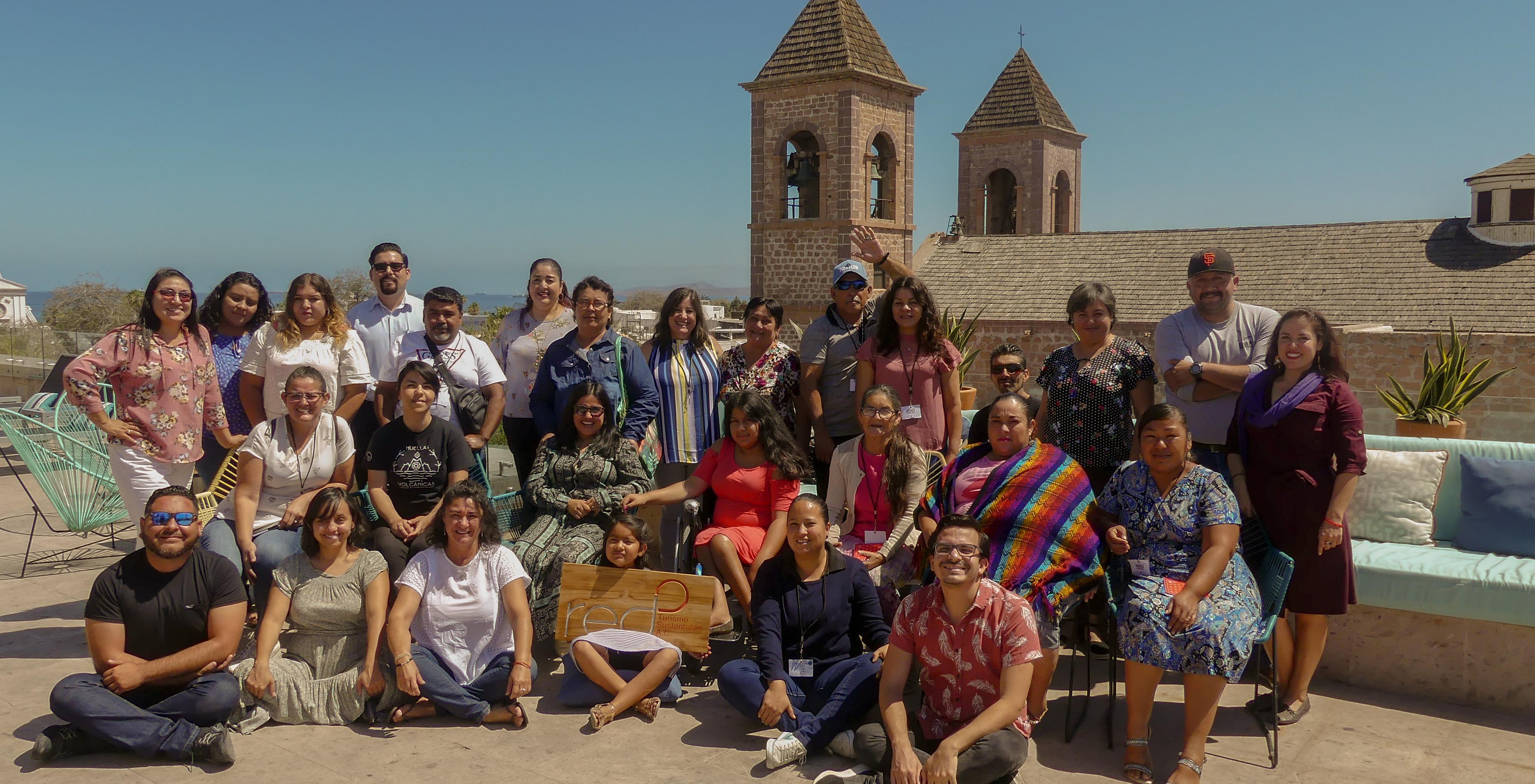
Closure of the administration workshop in La Paz.
Photo: RED Archive.
♦ IXCHEL LÓPEZ OLVERA is a biologist with a postgraduate degree in Environmental and Ecological Economics. She’s the director at RED de Turismo Sustentable y Desarrollo Social. ixchel@redturismosustentable.org
♦ EDITH CARRILLO RAMOS has a degree in Tourism with a postgraduate degree in Environmental Sciences, Management and Sustainability. Currently, she coordinates the Sustainable Economies Program at RED de Turismo Sustentable y Desarrollo Social. edith@redturismosustentable.org
References
[1] Comisión Nacional de Áreas Naturales Protegidas (2018). Marco Estratégico de Turismo Sustentable en Áreas Naturales Protegidas. México.
[2] Radar Turístico (2020). Cómo lograr la visión de la empresa y la pasión del emprendedor. Retrieved on September 8, 2020 from https://radarturistico.mx/wpcontent/uploads/2020/08/Radar_Turi%CC%81stico-N04Agosto-Co%CC%81mo_lograr_la_vision.pdf









